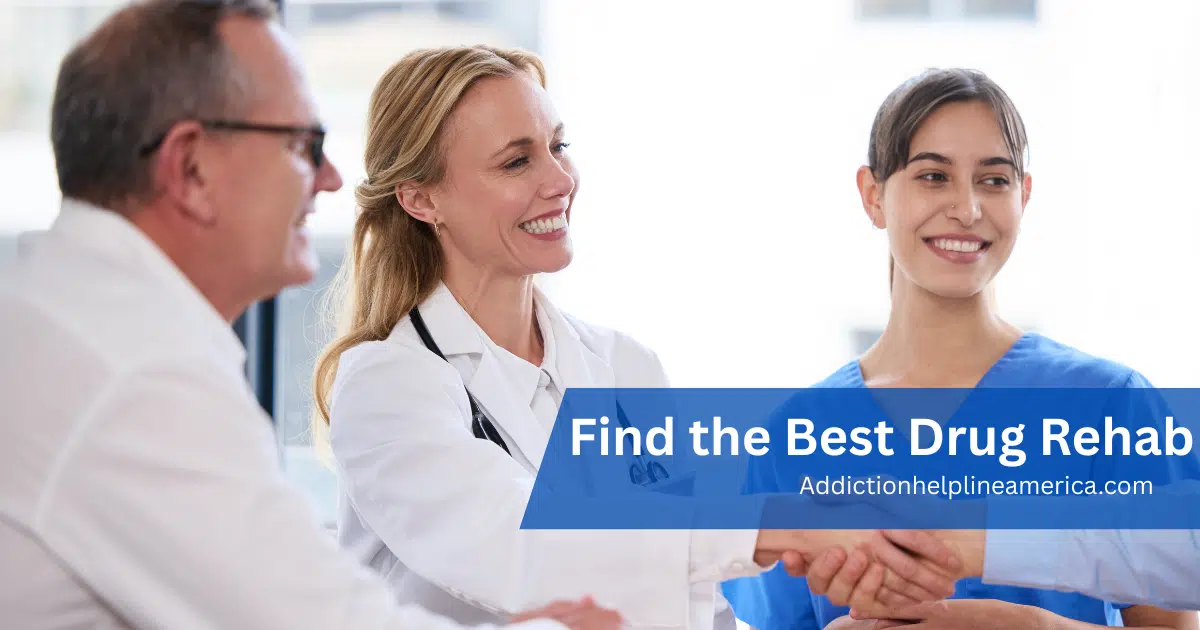
Drug addiction is a serious public health issue affecting millions of Americans across all walks of life. Whether it involves opioids, alcohol, or prescription drugs, substance use disorder is a treatable condition—and recovery is possible with the right support.
Choosing the best rehab program is a vital step toward long-term sobriety. With so many options available, understanding what to look for can make all the difference.
At Addiction Helpline America, we’re here to guide you. Our 24/7 confidential helpline at (844) 561-0606 connects individuals and families with trusted, high-quality treatment centers nationwide.
This guide will walk you through how to find the best drug rehab programs, compare treatment types, and take that first step toward recovery.
Drug addiction, also known as substance use disorder (SUD), is a chronic, relapsing medical condition characterized by the compulsive use of drugs despite harmful consequences. Addiction alters the brain’s chemistry, impairing judgment, decision-making, learning, and memory. Over time, individuals lose control over their drug use, developing both physical and psychological dependence that can be difficult to overcome without professional help.
Addiction is not a moral failing or lack of willpower—it is a disease that affects the brain’s reward system. Recognizing this is a critical first step toward seeking effective treatment and eliminating stigma.
Not all rehab programs are created equal. Selecting a facility or treatment plan that doesn’t align with an individual’s needs can significantly reduce the chances of recovery and in some cases, cause more harm than good. The wrong choice may lead to:
Inconsistent care or unaccredited facilities may also put patients at risk of poor medical supervision, misuse of medications, or emotionally unsafe environments.
On the other hand, enrolling in a high-quality rehab program dramatically increases the likelihood of long-term success. A comprehensive, evidence-based treatment program helps individuals:
Research shows that outcomes improve when treatment is individualized, multidisciplinary, and followed by strong aftercare planning. The right rehab program doesn’t just treat the addiction—it transforms the person’s overall health and future.
When selecting a facility, it’s crucial to consider the patient’s substance history, mental health, physical condition, social support, and readiness for change. A one-size-fits-all approach simply doesn’t work in addiction recovery.
Choosing the right type of rehab program is essential for addressing the specific needs, circumstances, and goals of each individual. Different program structures offer varying levels of care, flexibility, and intensity. Understanding these options can help you or your loved one make an informed decision.
Inpatient rehab, also known as residential treatment, involves staying full-time at a treatment facility for a designated period—typically 30, 60, or 90 days. This highly structured environment offers:
This level of care is ideal for individuals with severe addictions, co-occurring disorders, or a history of relapse. Inpatient rehab eliminates access to drugs and provides a stable environment for deep healing.
Outpatient programs allow individuals to live at home while attending scheduled treatment sessions during the day or evening. These programs are more flexible and cost-effective, making them suitable for:
While outpatient care offers convenience, it requires a high level of self-discipline and a stable living environment.
Residential programs are often long-term (90+ days) and provide an immersive, therapeutic community for recovery. While similar to inpatient rehab, they often focus more on:
These programs are particularly effective for individuals with chronic relapse patterns or dual diagnoses.
IOPs offer a middle ground between inpatient and traditional outpatient care. Participants attend structured sessions several times a week while continuing to live at home. IOPs include:
IOPs work well for individuals who need more support than standard outpatient programs but can’t commit to inpatient care.
PHPs, also known as day programs, provide comprehensive treatment during the day (usually 6–8 hours) while allowing patients to return home at night. These programs offer:
PHPs are appropriate for individuals who need a high level of care but have a safe, supportive home environment.
For some individuals, spiritual or alternative approaches to recovery are highly beneficial. Faith-based rehab programs incorporate religious teachings, prayer, and fellowship, while holistic programs may use:
These options can help address emotional and spiritual needs while promoting overall wellness and healing.
Every person’s addiction story is different—so their treatment plan should be too. High-quality rehab programs begin with a comprehensive intake assessment to evaluate:
Using this information, clinicians develop a customized treatment plan tailored to the individual’s unique needs, goals, and circumstances. Personalization ensures that care is relevant and effective from day one.
The most effective rehab programs rely on evidence-based practices—treatments that are supported by scientific research and clinical success. These include:
These therapies are often delivered in both individual and group settings for maximum impact.
Many people struggling with addiction also face mental health conditions like depression, anxiety, PTSD, or bipolar disorder. Programs that treat co-occurring disorders alongside addiction improve outcomes dramatically. Dual diagnosis treatment involves:
This approach addresses the root causes of substance use, not just the symptoms.
Top rehab facilities employ a multidisciplinary team of licensed professionals, including:
Programs should also be accredited by reputable organizations such as The Joint Commission or CARF, ensuring adherence to high standards of care and safety.
Recovery doesn’t end when formal treatment does. The best rehab programs provide structured aftercare plans to support ongoing sobriety. This may include:
Relapse prevention education helps clients identify triggers and develop tools to manage stress and cravings in real-world situations.
Addiction affects entire families—not just individuals. Programs that include family therapy, education, and support groups help rebuild trust, establish healthy communication, and create a more supportive recovery environment.
Family involvement can also reduce feelings of isolation and improve accountability post-treatment.
The physical setting of a rehab center can greatly impact a person’s ability to heal. Leading facilities offer:
A safe and supportive atmosphere fosters focus, stability, and peace of mind during the vulnerable stages of early recovery.
With thousands of treatment centers across the country, narrowing down the best options can be challenging. However, a few facilities consistently rise above the rest due to their clinical excellence, innovation, high success rates, and compassionate care. Here are five of the most respected drug rehab centers in the United States:
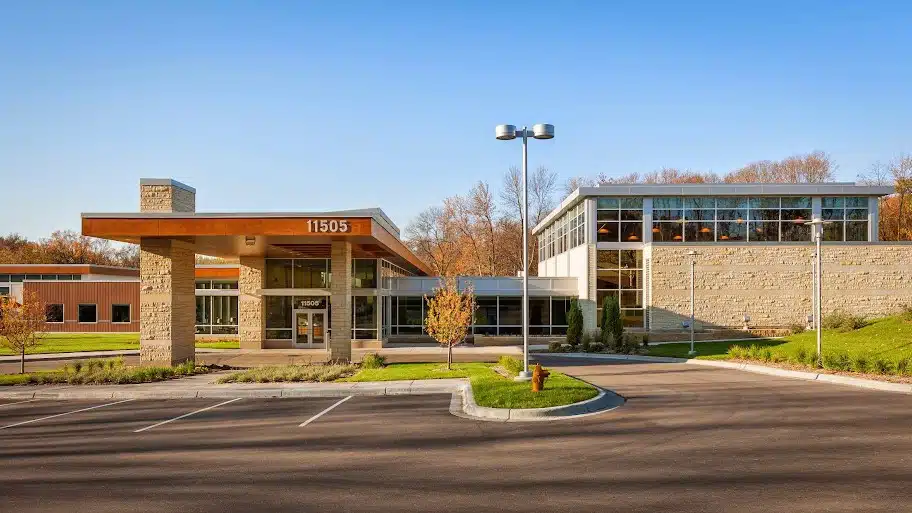
Location: Multiple locations nationwide
Why It Stands Out:
As one of the most recognized names in addiction treatment, Hazelden Betty Ford is a pioneer in the field. They offer evidence-based care, including 12-step facilitation, trauma-informed therapy, and Medication-Assisted Treatment (MAT). Their programs are customized by age, gender, and addiction severity.
Highlights:
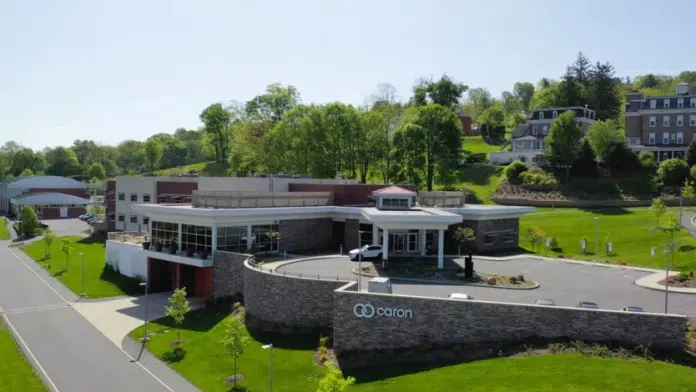
Why It Stands Out:
Caron is known for its high-end treatment services and luxury residential campuses. They specialize in treating professionals, executives, teens, and young adults. Caron uses an integrative approach that blends traditional therapy with holistic services.
Highlights:
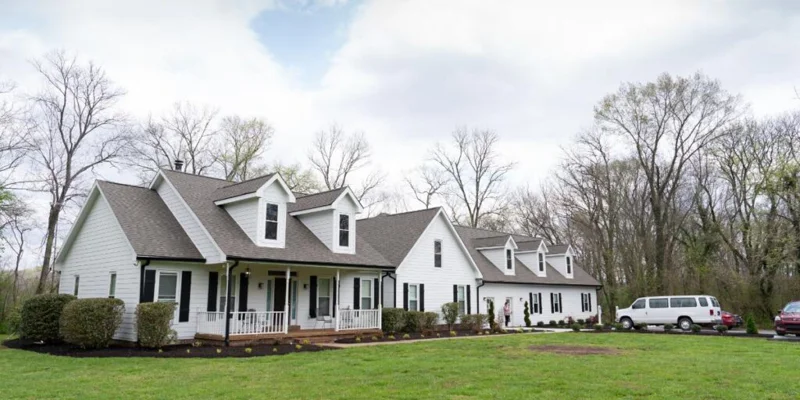
Location: Texas, Tennessee, Florida
Why It Stands Out:
Promises offers personalized, trauma-informed care in intimate settings. Their facilities provide treatment for substance use disorders, mental health conditions, and dual diagnoses. With a strong focus on emotional healing, Promises is ideal for clients who need individualized attention.
Highlights:
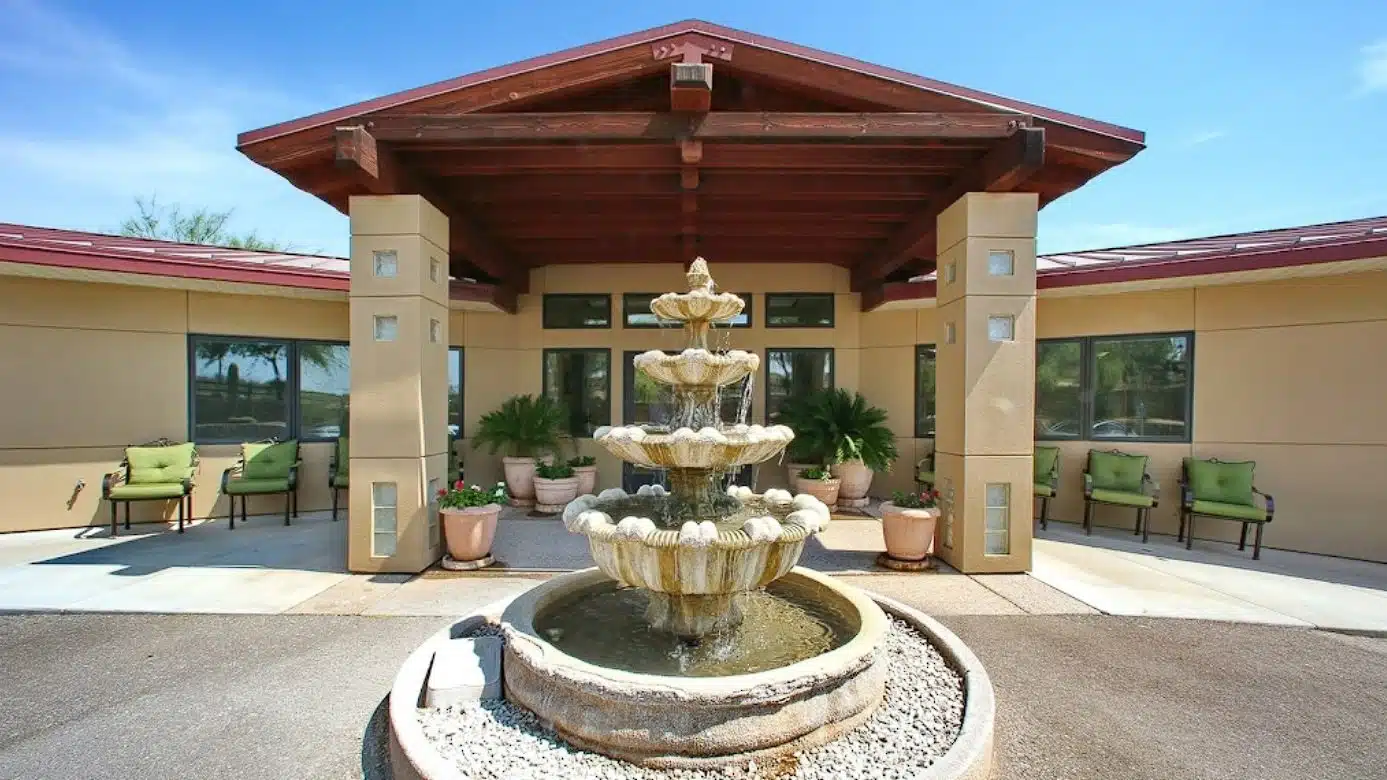
Location: Wickenburg, Arizona
Why It Stands Out:
The Meadows is a leader in trauma-focused treatment and has helped thousands recover from addiction, PTSD, and co-occurring conditions. Their model addresses underlying emotional wounds that often fuel substance use.
Highlights:
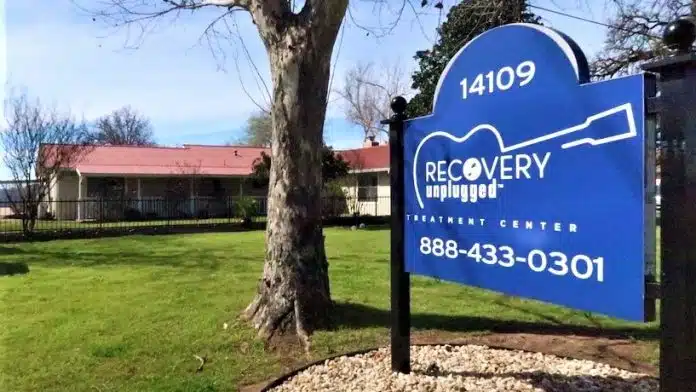
Location: Florida, Texas, Virginia, and Tennessee
Why It Stands Out:
Recovery Unplugged combines traditional addiction therapy with the healing power of music. Using music-assisted treatment as a core therapeutic tool, they’ve created a unique and engaging model that resonates deeply with clients.
Highlights:
The table below compares key features of major drug rehab program types to help individuals determine which might best fit their needs:
| Program Type | Level of Care | Duration | Cost | Best For | Pros | Cons |
|---|---|---|---|---|---|---|
| Inpatient Rehab | High (24/7 supervision) | 30–90+ days | High (unless insured) | Severe addiction, relapse history, dual diagnosis | Structured environment, medical support, focused recovery | Expensive, time away from work/school/family |
| Outpatient Rehab | Moderate to Low | Flexible (weeks to months) | Lower (often covered) | Mild to moderate addiction, strong support system | Flexible, allows daily living, affordable | Less structure, risk of relapse at home |
| Intensive Outpatient (IOP) | Moderate (frequent visits) | Several weeks to 3 months | Moderate | Those needing more than standard outpatient care | Balance of structure and flexibility, therapy-focused | Still requires stable home environment |
| Partial Hospitalization (PHP) | High (daytime care) | 20–30 days (typical) | Moderate to High | People needing medical monitoring but not overnight care | Strong medical and psychiatric support, return home at night | Demands daily attendance, limited flexibility |
| Residential Treatment | High (24/7, long-term) | 90+ days | High | Chronic addiction, multiple relapses | Long-term care, life skill development, intensive therapy | Higher cost, extended commitment |
| Faith-Based/Holistic Rehab | Varies | Varies | Varies | Individuals wanting spiritual or alternative healing | Spiritual growth, personalized therapies (yoga, art, music) | May lack medical or evidence-based treatments depending on facility |
With so many treatment options available, knowing how to evaluate and compare drug rehab centers is essential to finding the right fit. The best programs share certain standards of care, transparency, and professionalism. Here’s what to look for when assessing a rehab facility:
Start by ensuring the rehab center is licensed by the state and accredited by reputable organizations, such as:
These accreditations signify that the program meets or exceeds national standards for quality and safety. Avoid facilities that lack proper oversight.
While no rehab center can guarantee 100% success, reputable programs should be transparent about their outcomes. Look for:
Independent review sites, Better Business Bureau ratings, and state health departments can also provide valuable insight.
Drug rehab costs vary widely, from publicly funded programs to high-end luxury centers. Factors that influence cost include:
Check whether the facility accepts your insurance or offers sliding scale fees. A trustworthy center will help verify your benefits and explain all out-of-pocket costs upfront.
The environment plays a vital role in healing. Some individuals do better in secluded, nature-filled settings, while others may prefer urban centers close to family. Consider:
A change of scenery can sometimes help individuals mentally and emotionally detach from the patterns that fuel their addiction.
Treatment timelines should be based on clinical need—not convenience. Avoid programs that offer a “one-size-fits-all” timeline. Look for:
Effective recovery takes time, and the most reputable facilities will emphasize individualized pacing.
Some rehab centers offer specialized programs tailored to specific populations. These can increase engagement and improve outcomes. Common examples include:
Matching a program to an individual’s identity, background, or experiences can make treatment more relevant and effective.
Despite the availability of quality rehab programs, many individuals still struggle to access the care they need. Several barriers—emotional, financial, logistical, and societal—can delay or prevent someone from starting treatment. Identifying and addressing these challenges is key to making recovery possible.
Cost is one of the most commonly cited obstacles to entering rehab. Treatment—especially inpatient programs—can be expensive. However, there are multiple ways to reduce the financial burden:
No one should have to forgo life-saving treatment due to finances. Resources like Addiction Helpline America can help match individuals with affordable options: (844) 561-0606.
Social stigma surrounding addiction continues to prevent people from seeking help. Many fear being judged by:
Additionally, denial is a hallmark of addiction. Individuals may minimize the severity of their use, believe they can quit on their own, or feel too ashamed to reach out.
Solution:
In rural or underserved areas, access to nearby rehab centers may be limited. Long travel times, lack of public transportation, and regional shortages in qualified treatment providers are all real challenges.
Solution:
The addiction treatment landscape is complex. Without guidance, it’s easy to feel lost navigating:
Solution:
Once the decision is made to seek treatment, knowing where and how to begin the rehab search can feel overwhelming. The key is to take actionable, informed steps that guide you toward the right care—without delay. Whether you’re seeking help for yourself or a loved one, here’s how to start the process with confidence.
Avoid relying on flashy ads or unverified claims when selecting a treatment center. Instead, begin your search with trusted resources that provide unbiased, updated information:
For many people, a simple phone call can be the turning point. By calling (844) 561-0606, you’ll connect with a trained, compassionate recovery advisor who can:
The call is confidential, free of charge, and available 24/7—including weekends and holidays.
Once you’ve identified a few potential programs, prepare a list of questions to ensure the facility is a good fit. Key questions include:
Gathering these answers ahead of time empowers you to make an informed decision—and increases your chances of choosing a program that delivers results.
Deciding to seek help for addiction is one of the most courageous and life-changing steps a person can take. While the road to recovery may seem long, every journey begins with that critical first move. Understanding what this initial step involves can make the process feel less intimidating and more achievable.
Timing is everything when it comes to addiction treatment. Many people struggle for months—or even years—before committing to rehab. Unfortunately, the longer addiction continues, the more damage it does to a person’s body, mind, relationships, and future.
Taking immediate action increases the chances of successful recovery and prevents further harm. Whether you or your loved one is experiencing a crisis or simply feels ready to change, acting now can be the difference between survival and tragedy.
Some reasons not to delay:
Watching someone you care about battle addiction is heartbreaking—and often frustrating. If you’re trying to encourage a loved one to enter rehab, remember:
It’s also important to understand that the decision must ultimately come from the individual. Your role is to create a safe, supportive environment and remove as many barriers as possible.
Once the decision is made, the next step is committing fully to the treatment plan. Whether it’s inpatient or outpatient, long-term or short-term, success depends on:
Remember, rehab is not a punishment—it’s an opportunity to reclaim your life, rebuild relationships, and rediscover your potential. With the right support system and mindset, long-term recovery is entirely possible.
If you’re ready to take that step, help is just one call away: (844) 561-0606.
Finding the right drug rehab program is one of the most important decisions a person struggling with addiction can make. It’s more than just selecting a facility—it’s about choosing a path to healing, growth, and long-term recovery. With the right treatment, people don’t just survive addiction—they thrive beyond it.
In this guide, we’ve explored the critical factors that influence successful recovery, from understanding addiction and the types of treatment programs available to recognizing key features of top-rated rehab centers. We’ve highlighted the importance of individualized care, dual diagnosis support, evidence-based therapies, and the power of family involvement. We’ve also identified common barriers that prevent people from accessing care—and how to overcome them.
Most importantly, we’ve shown that help is always available.
If you or someone you love is battling addiction, don’t wait. Recovery starts with one brave decision—and you don’t have to make it alone. At Addiction Helpline America, our compassionate team is available 24/7 to guide you through the process and connect you with trusted treatment providers across the country.
Call now: (844) 561-0606. Your new life is waiting—and it begins with the courage to reach out.
Hazelden Betty Ford Foundation. Addiction Treatment Programs & Recovery Services. Available at: https://www.hazeldenbettyford.org
At Addiction Helpline America, our expert team has curated a comprehensive directory of top-rated drug rehabilitation centers nationwide. Simply select your state to explore a list of trusted facilities, complete with levels of care, operating hours, and direct contact details.
Can’t find the right rehab center for your needs? Call our free 24/7 helpline to speak with a qualified professional who can guide you toward the right treatment option. Call Now! (844) 561-0606
If you or someone you care about is struggling with drug or alcohol addiction, we can help you explore your recovery options. Don’t face this challenge alone—seek support from us.
Are you or a loved one struggling with addiction? Call today to speak to a treatment expert.
For anyone seeking help for addiction for themselves or a loved one calls to Addiction Helpline America are completely confidential and available 24/7.
Please note: any treatment center listed on our site that receives calls is a paid advertiser.
Calls to a specific treatment center’s listing will be connected directly to that center.
Calls to our general helpline will be answered by treatment providers, all of whom are paid advertisers.
By calling the helpline, you agree to our terms and conditions. These calls are free of charge and carry no obligation to enter treatment. Neither Sober Steps nor anyone answering your call receives a commission or fee based on your choice of treatment provider.
If you’d like to explore additional treatment options or connect with a specific rehab center, you can browse our top-rated listings, visit our homepage, or call us at (844) 561-0606. You may also contact us for further assistance.
Calls to any general helpline will be answered or returned by one of the treatment providers listed, each of which is a paid advertiser:
Our helpline is available 24 hours a day, 7 days a week at no cost to you and with no obligation for you to enter into treatment. We are committed to providing support and guidance whenever you need it.
In some cases, Addiction Helpline America charges our verified partner a modest cost per call. This fee helps us cover the costs of building and maintaining our website, ensuring that we can continue to offer this valuable service to those in need.